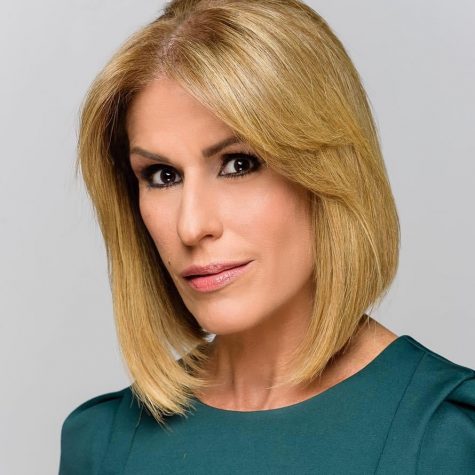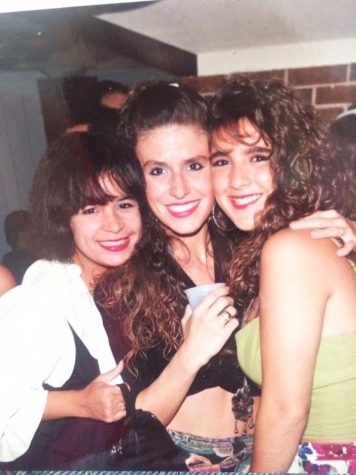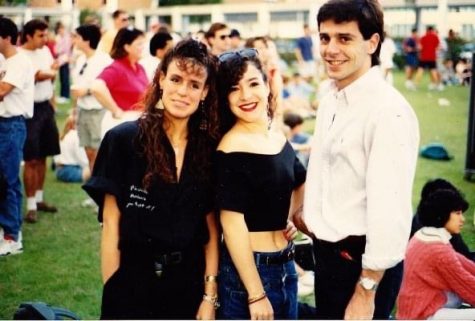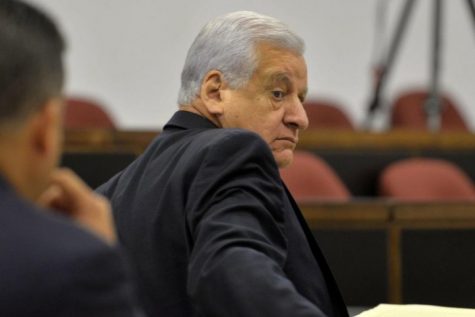THE CHALLENGE OF BEING A JOURNALIST: Portrait of Ivette Sosa
September 22, 2020
THE CHALLENGE OF BEING A JOURNALIST: Portrait of Ivette Sosa

By Cecilia Llull
Ivette Sosa wanted to study a career that came naturally to her. At first, she thought that was dermatology, but an aptitude test proved otherwise. Apparently, she should pursue a career within the communications field, and so she graciously accepted that science was not her strong suit and delved into the uncertain labyrinths of journalism.
After studying for a year at Universidad del Sagrado Corazón in Puerto Rico, she decided to transfer to Loyola University New Orleans where she majored in Broadcast Journalism and minored in Sociology.
Her years at Loyola went by like that of any student in New Orleans: nights at The Boot, Brunos, and the now less frequented Cooper Brown’s and Fat Harry’s; breakfast at Camellia Grill; trips to downtown on the streetcar that would end with beignets at 3 am in Cafe du Monde.


But beyond the emblematic New Orleans party scene, it was there, at Loyola, that Sosa discovered her journalistic vocation, investigative journalism.
“During my time at Loyola, I took a class called TV Analysis and Criticism with Dr. Mary Blue, and in that class, even though I had to put in a lot of effort, it was one of the classes I treasure the most because that’s when I knew that I like challenges,” Sosa recalled, “and now, in my professional life, challenges don’t scare me and that is thanks to Loyola.”
Ivette Sosa graduated from Loyola in December 1991. In January 1992 she started working at Telemundo Puerto Rico, where she works to this day.
Little did she know that 25 years later, in 2016, she would face the biggest challenge in her journalistic career in a parking lot where she would receive some documents by an unknown person.
“I meet this person who gives me a document from the U.S. Equal Employment Opportunity Commission that narrated all the disgusting behavior that a powerful mayor allegedly committed against a female police officer,” Sosa said.
The accusations were against the then-mayor of the municipality of Guaynabo, Hector O’Neill, who had been in office for almost 25 years.
“What led me to investigate that case was how disgusting it was. I identified with that woman because I am a woman and I have seen how different employers abuse women. So, after validating the document, I began to investigate that case with all my guts,” Sosa said, “I gained that person’s trust and then that person led me to others. The information flowed easily and I would say that 90% of it, perhaps more, was given to me by the employees of the municipality of Guaynabo. And everything was corroborated. So much so that O’Neill and his lawyers threatened to sue me immediately and to this day I’m waiting for the lawsuit.”
However, although the lawsuit never came, when Sosa announced the release of her book, ¿Hostigador en serie? El escándalo de Guaynabo City, O’Neill used all the power acquired in nearly 30 years of political career to prevent it from coming out, and in the process, undermine the credibility of Ivette Sosa.
His first attempt to keep the book from coming out was to say that the cover photo could not be used because he had not authorized it. This, Sosa did not fight because she would waste time and the important thing was that the information was accessible, that people knew what was happening in the municipality of Guaynabo. Then, the book came out and it was there that the process progressed in the courts, but the intimidation and persecution towards Ivette Sosa also progressed.

“They hired private detectives to follow me. In the community where I lived before, they tried to find out if I owed any money. What they want is for my credibility to be affected en route to trial because if you attack the credibility of the journalist who led you there, you’re already halfway clear,” Sosa said. “I’ve always said, even publicly on my social networks, that I’m not afraid of them, that even if I get a cold, everyone will know who is responsible for it.”
The case against former Guaynabo Mayor, Hector O’Neill, is yet to be seen, as he has motions before the Court of Appeals and also before the Supreme Court. Meanwhile, O’Neill has an electronic shackle monitored by the U.S. Probation Office for the District of Puerto Rico.
Regardless of the repercussions that the coverage of this case has had on the life of Ivette Sosa, she continues head-on and without fear of the challenges that life throws at her.
“The job of a journalist is to scrutinize all governments, red or blue,” Sosa said, “and precisely, the biggest challenge for any journalist is that the government does not prevent you from doing your job, that it does not put obstacles in your way or try to harm you. So all the journalists in the making should know that if they do what they really have to do, scrutinize the government because it’s their government and mine, they will face the challenge that I face everyday and that makes my job so interesting.”






